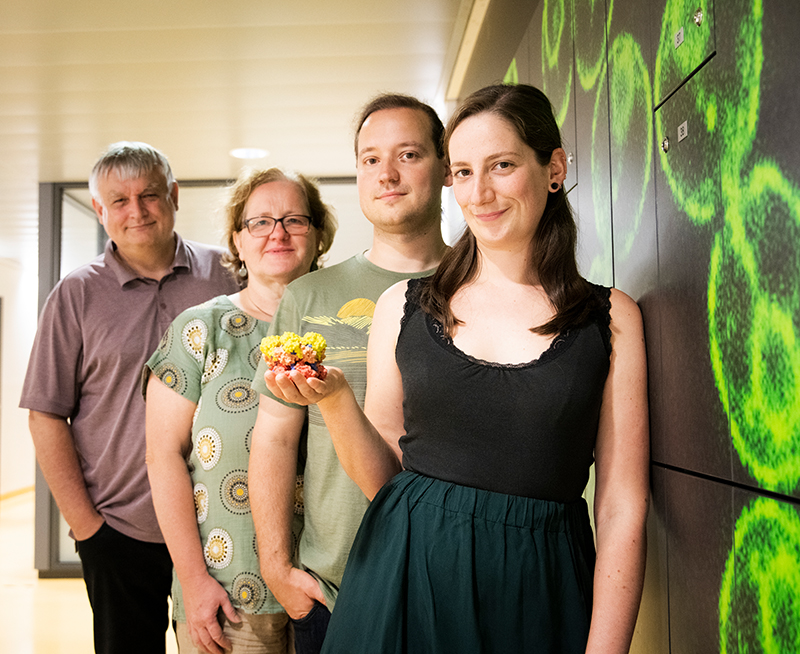For a cell to survive, it needs protein. It can produce these proteins itself, using ribosomes. Even these “biological machines”, however, first need to be assembled – and this assembly is an ongoing process. Like all complex machines, ribosomes are made up of many different individual elements. A team of researchers from the Institute of Molecular Biosciences at the University of Graz and the Research Institute of Molecular Pathology (IMP) in Vienna has now made an important step in this production process visible at the molecular level for the first time. “This special process is vital for ensuring that ribosomes are assembled correctly,” explains first author Michael Prattes from the Molecular Biology Department at the University of Graz. The results can be read as a cover story in the September issue of the journal Nature Structural and Molecular Biology.
Their work specifically concerns a protein called Drg1, which binds to preribosomal particles during assembly, and sequesters certain “tools”. “These proteins are also responsible for transporting and assembling individual elements and checking the general progress at the assembly site,” explains last author Helmut Bergler. The timely displacement of these tools is vital because, by this point, they are already needed elsewhere. “If there is a bottleneck in the production chain, the entire process is at risk. This can help tumours grow or disrupt brain development,” says David Haselbach from IMP Vienna. The research team has now been able to observe how Drg1 converts chemical energy into mechanical work and thus successfully detaches the protein tool after completing its task.
This glimpse into the innermost “gears” is essential for the treatment of various diseases. Cancer cells, for example, divide very quickly, meaning that they need to produce more ribosomes than healthy cells. Substances that slow down the production of ribosomes could, therefore, be promising candidates for new drugs to combat cancer. However a better understanding of Drg1 can also prove useful when conducting research into certain hereditary diseases. If a person carries mutations in this gene, it can cause epilepsy, brain abnormalities and hearing loss.
Publication: Prattes et. al. Visualizing maturation factor extraction from the nascent ribosome by the AAA-ATPase Drg1 (2022). Nature Structural and Molecular Biology. DOI: 10.1038/s41594-022-00832-5
The research is part of the Field of Excellence BioHealth at the University of Graz.
Credit of the music in the video below: Bensound.com/royalty-free-music
